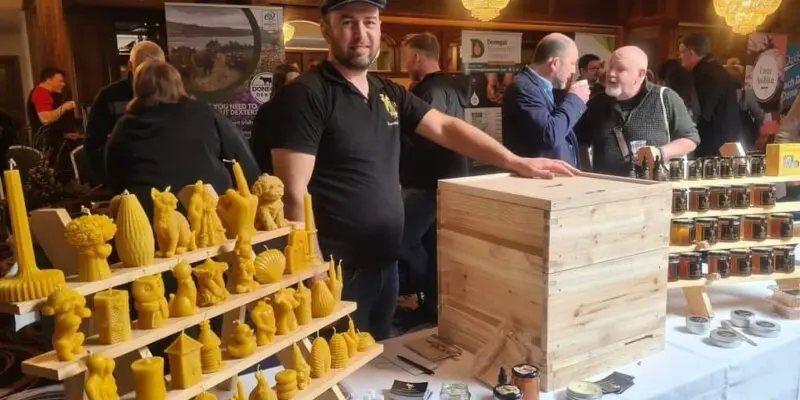Hi, I’m Abdul, a beekeeper from Carndonagh, originally from Syria. Beekeeping runs deep in my family, with my father and grandfather both teaching me everything that I know. However, my journey to the beautiful Inishowen peninsula of County Donegal has been long and filled with challenges. I fled my village outside Hama with my wife Malak, leaving behind my elderly parents, brothers and sisters, and 20 hives. The bees have been my constant companions, a link between my past and present.
I finished my teacher training in Aleppo, but as the situation worsened, I knew I had to escape military conscription. Malak and I left Syria on a motorbike, eventually finding refuge in a camp in Greece for nine months, where our first child was born. In 2016, we arrived in Ireland as asylum seekers, spending nine months in Roscommon learning English before settling in Carndonagh, a place that I’m now so proud to call home.
Not long after I arrived in Inishowen, I set up my first beehive in our garden which I made at the Carn Men’s Shed. Bees have always been a source of solace for me, especially during difficult times. Their peaceful nature and hard work inspire me. However, bees are now endangered due to human actions, not just in Ireland but globally. My three younger children were born here, and they share my love for bees.
My garden soon became too small for my growing hives, so I reached out to the Carn community for help. Local farmer Wilson Moore offered me space on his farm, and we’ve formed a very close friendship since. Wilson has been learning about beekeeping, and I’ve been able to expand my hives and even set up a workshop in one of his outhouses.
I make my living now by producing honey, candles, propolis powder, and a host of other bee products. But more than that, I feel a calling to educate people about the importance of bees. I only take half of the honey my bees produce, ensuring they have enough to thrive.
At Wilson’s farm, surrounded by high grasses and blooming wildflowers, I often reflect on the hardworking bees collecting nectar. Their 35-day life cycle and relentless work are truly inspiring. They remind us of the importance of perseverance and the critical role they play in our ecosystem.
With bee populations declining, I believe everyone can contribute to their protection. Simple actions like not cutting your grass, allowing clover and dandelion to bloom, planting native species, and using natural fertilisers like nettles can make a big difference. Teaching children about bees is also crucial; my own children are very knowledgeable and passionate about them.
In the end, bees teach us that even the smallest creatures can defy the odds and make a significant impact. By working together and taking small steps, we can protect these vital pollinators and, in turn, safeguard our future.


